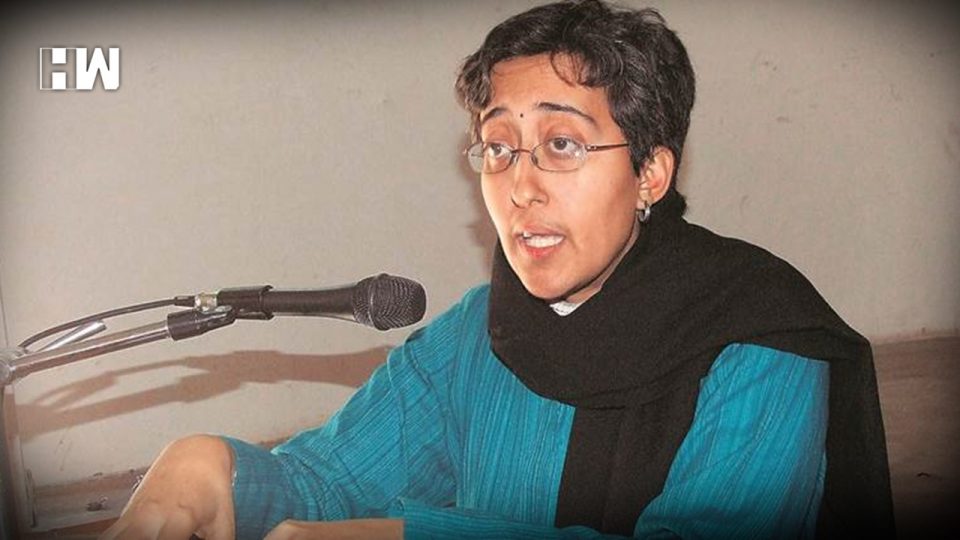New Delhi | People this time will vote for Delhi’s full statehood as not having the status is directly linked with concrete issues such as unemployment, women’s safety and lack of opportunities in higher education, AAP leader Atishi has said.
Atishi is one of the seven candidates fielded by the Aam Aadmi Party (AAP) for the Lok Sabha elections in Delhi. The AAP is contesting the elections with the slogan ‘Poorna Rajya Banao Jhadu ka Button Dabao’, telling people that Delhi will get full statehood if they vote for the party.
In an interview to PTI, the Aam Aadmi Party’s Lok Sabha candidate for the East Delhi constituency said the party is “talking of concrete issues of lack of safety and security, cleanliness and employment that is linked to Delhi not having full statehood”.
“People in Delhi this election are going to vote on these factors,” Atishi said.
Noting that there is “no narrative” this election and people would vote based on local issues affecting them, she said, “Like in 2014, there was ‘Abki Baar Modi Sarkar’, in 2015, there was narrative to make Kejriwal as the chief minister but if you see in this election there is no narrative across the nation either in favour of anyone or against anyone”.
She added that a lot of people who voted for the BJP in 2014 were “not natural BJP voters” but the ones hoping for a change in favour of development.
“When they voted for the BJP (in 2014), they thought it is on the agenda of development. They were also the elections that had mega narratives,” she said.
“I think people would say we have seen consequences of voting for Modi, nothing changed in our lives. Our children still don’t have education, they don’t have jobs, women are still not safe. Now they will vote based on seeing the work that we (AAP) have done after coming to power,” the 37-year-old Oxford graduate said.
On reforms in government school education in Delhi, Atishi said when the AAP came to power, there were multiple gaps that had to be dealt with.
“One was that of the basic infrastructure, whatever infrastructure was there was poorly maintained. There were some schools in east Delhi having over 150 students in one class and with such infrastructure deficiency there is no way you can provide high-quality education,” she said.
“I think all this shortage of infrastructure gave this message to the children that you are second class citizens and you don’t matter in this world and you are not going to make it anywhere,” Atishi said.
The second major challenge was “lack of accountability” which, she claimed, is a “hallmark of a government system”.
“I think changing that mindset was the biggest challenge. Everyone in this system used to believe that this system couldn’t work,” she said.
“Teachers are same, schools are same, children are same but the fact that you have a government in power that is willing to improve, an intent to improve and that changed things,” she said.
But she noted that Delhi’s higher education is still facing a crisis.
“You have 2.5 lakh students passing out of class 12 every year in Delhi and that number is increasing. There are only one lakh seats in higher educational institutes for which children from across the country are seeking admission. So there is definitely a crisis,” she said.
“Most of the children passing out of Delhi government schools do their undergraduate through correspondence and there are 28 colleges that are funded by the city government so at least 85 per cent seats should be reserved for children in Delhi as it is being run by their taxpayers’ money,” she said.
She lamented that the Centre opposes such a reservation in the universities in Delhi for local students but at the same time prohibits the opening of new universities according to the Delhi University Act.
“So where will the children of Delhi go,” she asked.
“Once Delhi gets full statehood, this is a very big issue that would be solved. We would be able to give 85 per cent reservation to Delhiites in these colleges,” she said.
She exuded confidence that the status, once granted to Delhi, will help expand higher education under the AAP dispensation.
Atishi said women’s safety in the national capital is also one of the biggest agenda for this election.
“We have shown that we can make government systems work. With full statehood, a transformation can also happen in the police system where there is a lack of accountability and complete statehood would bring that accountability,” she said.
As an independent media platform, we do not take advertisements from governments and corporate houses. It is you, our readers, who have supported us on our journey to do honest and unbiased journalism. Please contribute, so that we can continue to do the same in future.

